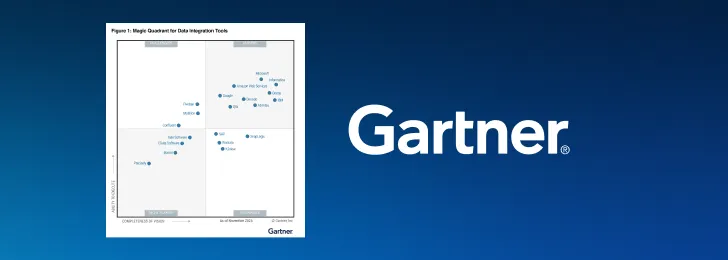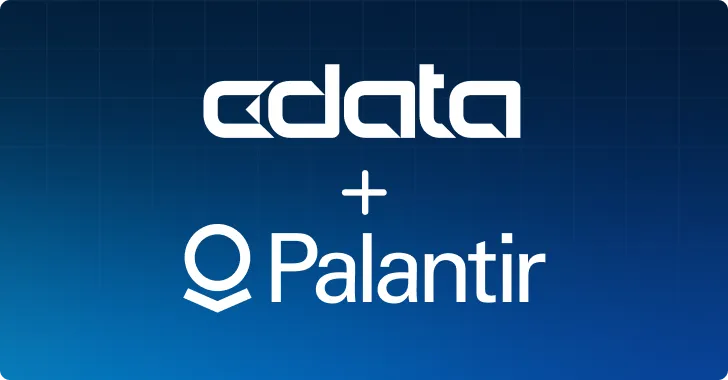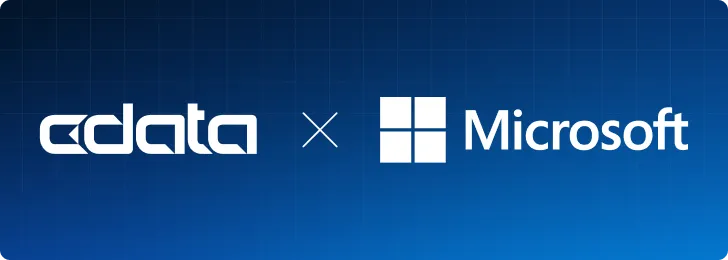
As enterprises increasingly adopt AI agents to automate business processes, they face a key challenge: How do these agents access and interact with the diverse data ecosystems that power their business? While many vendors push centralized data approaches, CData's MCP (Model Context Protocol) Servers offer a compelling alternative that preserves data locality while enabling sophisticated agentic interactions.
Defining the agent architecture framework
To understand where connectivity fits, we first need a clear definition of what constitutes an AI agent. Salesforce's AgentForce provides an excellent framework that breaks agents into five core components:
- Role: The agent's specific function or job within the business context—whether customer service, sales automation, or data analysis.
- Data and context: The information sources the agent can access to make informed decisions and provide relevant responses.
- Actions: The agent's ability to take concrete steps in downstream systems—updating records, creating tickets, or triggering workflows.
- Channels: The interfaces through which users interact with the agent—web interfaces, mobile apps, Slack, Teams, or CRM platforms.
- Guardrails: The constraints and governance rules that prevent the agent from operating outside acceptable parameters.
Sources: Salesforce, "Discover Agentforce" Salesforce Trailhead
CData's MCP approach: Live data, live actions
CData MCP Servers enable agents to interact directly with live data in source systems. Instead of moving data to the agent, we bring the agent's capabilities to the data.
Architecture in practice
Consider an agent running that needs to:
- Query customer support tickets from within Salesforce Service Cloud
- Check order status in NetSuite
- Update offers data in Adobe Campaign
- Correlate insights across all three systems
CData MCP approach:
- Configure CData Connectors (on-premises or cloud-based) to Salesforce Service Cloud, NetSuite, and Adobe
- Deploy the remote MCP server as a service
- The agent can now directly query live data and take actions across all systems through natural language interactions via CData
Technical implementation: How CData enables SQL-driven agent intelligence
The key technical advantage lies in how CData MCP Servers enable conversational AI experiences with external data sources through a SQL-based architecture that leverages AI's natural language processing strengths.
Large language models (LLMs) have strong SQL proficiency from extensive training data exposure, making SQL more reliable than teaching agents hundreds of different APIs. It also lets CData’s SQL engine handle the complexity of sophisticated queries instead of the LLM itself, for more performant and consistent results. For example, when a user asks the agent to "update the priority of ticket #12345 in Zendesk and check if there are related orders in NetSuite," the process works as follows:
- LLM explores the source system schema and metadata provided by the CData MCP Server based on the natural language request
- LLM generates standard SQL queries with an understanding of the source system schema
- MCP securely sends SQL to the appropriate CData connector
- CData translates SQL to API calls for each specific system
- CData executes operations using user credentials, inheriting their permissions
- CData returns results through a unified SQL interface for comprehensive responses
- LLM translates the data results into natural language for the user
This SQL-based approach provides automatic permission inheritance, structured command validation, clear audit trails, and reduced security complexity—all while enabling complex multi-system operations without pre-loading data or building custom APIs.
CData's role within the agent framework
To clearly understand CData's position in the agentic AI ecosystem, let's map our capabilities directly to the framework components:
Role: Platform agnostic
CData doesn't define the agent's role—that remains the domain of the business application or platform where the agent operates. Whether the agent serves customer service, sales automation, or data analysis functions, CData's connectivity layer adapts to support any role-based requirements.
Data and context: Live external data access
This is where CData provides core value. While platforms typically limit agents to their native data sources and custom-built agents require custom-built integrations, CData MCP servers extend data access to more than 350 external systems. The agent gains real-time access to:
- Transactional data from ERP systems
- Customer support data from ticketing platforms
- Marketing campaign data from automation tools
- Financial data from accounting systems
- All while preserving original context, metadata, and business logic
Actions: Bi-directional system interactions
Beyond data access, CData enables agents to take actions across external systems through the same connector. This includes:
- Creating and updating records in source systems
- Triggering workflows in external platforms
- Executing complex multi-system operations
- Maintaining audit trails across all connected systems
Channels: Channel-agnostic enablement
CData doesn't provide user interface channels directly. Instead, we enhance the conversational AI capabilities within existing channels. Whether the agent operates through a web interface, mobile app, Slack, Teams, or CRM platform, CData MCP servers extend that channel's data reach to external systems.
Guardrails: Native system governance
Rather than recreating governance rules, CData preserves and leverages the existing security, permissions, and access controls within each connected system for use within the agent’s context. This means:
- User permissions remain consistent with source system policies
- Data access follows established organizational hierarchies
- Audit logs maintain compliance with existing governance frameworks
- No additional security layer to configure or maintain
Extending agent capabilities beyond platform boundaries
The MCP approach fundamentally extends an agent's capabilities beyond its native platform. Without CData's connectivity layer, an agent within any given platform can only have conversational experiences with data that exists within that platform's native data model.
With CData MCP servers, that same agent gains the ability to chat with data living in Jira, ServiceNow, Marketo, and hundreds of other systems—all while maintaining the data's original context, governance, and real-time accuracy.
CData's MCP servers enable conversational AI experiences with live data across more than 350 enterprise applications and databases. Learn more about implementing agentic AI architectures with real-time connectivity at cdata.com.
Try CData MCP Servers Beta
As AI moves toward more contextual intelligence, CData MCP Servers can bridge the gap between your AI and business data.





